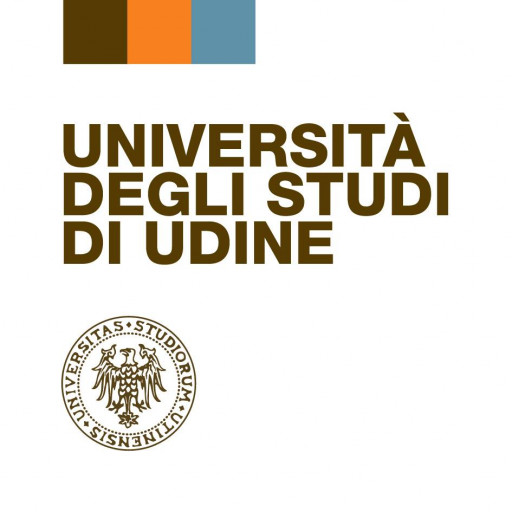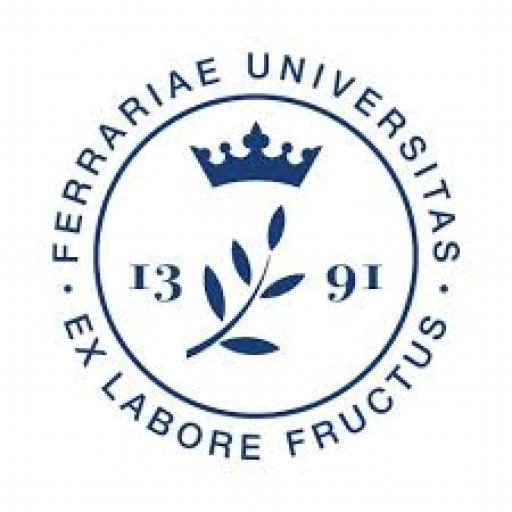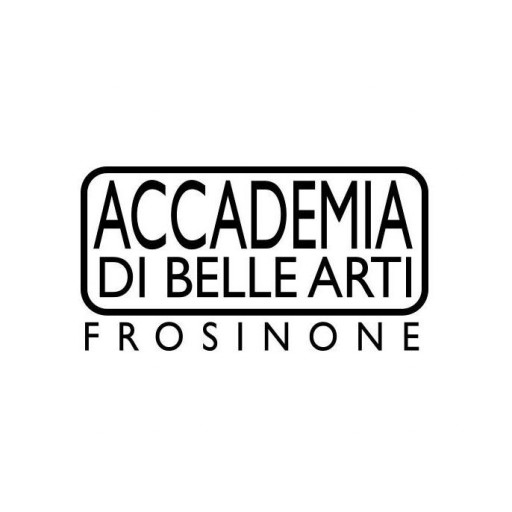Photos of university
The Master's Programme in Cultural Sociology in Social Transformation Processes at the University of Southern Denmark offers a comprehensive and interdisciplinary approach to understanding the complex dynamics of cultural change within societies. This program is designed for students who are interested in exploring how cultural practices, beliefs, and social structures influence and are influenced by ongoing social transformations. Throughout the course of this program, students will engage with contemporary sociological theories and methods, gaining critical insights into issues such as globalization, identity politics, cultural diversity, and social innovation. The curriculum emphasizes analytical skills and practical research competencies, enabling students to investigate cultural phenomena in various social contexts through qualitative and quantitative approaches. Students will also have the opportunity to participate in hands-on projects, internships, and fieldwork, which facilitate the application of theoretical knowledge to real-world issues. The program fosters an understanding of the role of culture in societal development and change, and prepares graduates for careers in research, policy analysis, cultural management, NGOs, or international organizations. The teaching staff comprises experienced researchers and practitioners dedicated to providing a stimulating and supportive learning environment. Graduates of this programme will be equipped with the analytical tools and cultural awareness necessary to analyze social transformation processes critically and to contribute meaningfully to discussions about societal change at local, national, and global levels. The program typically runs over two years and culminates in a master's thesis that allows students to conduct independent research on a topic of their choice within the field of cultural sociology and social transformation. This degree aims to foster critical thinking, intercultural competence, and a nuanced understanding of the intricate links between culture and social change, making it an ideal choice for students passionate about shaping a more inclusive and innovative society.
The Master’s program in Cultural Sociology in Social Transformation Processes at the University of Southern Denmark offers a comprehensive and interdisciplinary approach to understanding the dynamic role of culture in societal change. This program is designed to equip students with advanced theoretical knowledge and practical analytical skills to examine how cultural practices, identities, and social narratives influence transformations within contemporary societies. Students will explore a wide range of topics, including cultural identity, social movements, media and communication, globalization, and policy development, all through the lens of sociological theories and cultural analysis. The curriculum emphasizes critical thinking, qualitative and quantitative research methods, and comparative analysis, enabling students to conduct meaningful research and contribute to societal development. Throughout the program, students engage with case studies from Denmark and around the world, fostering a global perspective on social change. The program balances academic inquiry with real-world applications, preparing graduates for careers in research, policy-making, cultural management, NGOs, and international organizations. Interdisciplinary collaboration is encouraged, with opportunities to work across fields such as anthropology, political science, media studies, and history. Students will also develop essential skills in academic writing, presentation, and project management. The program culminates in a thesis where students can investigate specific aspects of social transformation processes influenced by cultural factors. The university's vibrant academic environment, combined with close interaction with faculty members and practitioners, provides an ideal setting for intellectual growth. Graduates of this program will be well-equipped to analyze complex social phenomena, influence cultural policy, and contribute to positive societal transformations locally and globally.
The program in Cultural Sociology in Social Transformation Processes at the University of Southern Denmark requires applicants to have completed a relevant undergraduate degree, preferably in sociology, anthropology, or a related social science discipline, demonstrating a solid foundation in social theory and research methods. Prospective students must submit academic transcripts, a statement of motivation outlining their interest and goals related to social transformation studies, and letters of recommendation from academic referees who can attest to the applicant’s analytical and research capabilities. Proficiency in English is mandatory, with applicants expected to provide evidence through standardized tests such as TOEFL or IELTS if their prior education was not conducted in English. Prior coursework or experience in qualitative and quantitative research methods is advantageous, as the program emphasizes empirical research and critical analysis of social change processes. The curriculum is designed to incorporate a combination of core courses in social theory, research methodology, and contemporary issues in social transformation, along with specialized modules focusing on cultural dynamics, social movements, and policy analysis. Students are also expected to undertake a substantial research project or thesis, which involves independent investigation under supervision. Engagement in seminars, workshops, and conferences is encouraged to foster academic discussion and practical understanding of cultural phenomena. The program duration is typically two years for full-time students, with options for part-time study available. Candidates must also demonstrate their ability to work independently and collaboratively, as well as a keen interest in understanding the complex interplay between culture and societal change. Upon completion, graduates will be equipped with analytical skills, theoretical knowledge, and methodological expertise to pursue careers in academia, policy analysis, nonprofit organizations, or cultural consultancy roles related to social transformation processes.
The financing options for the Master's degree in Cultural Sociology in Social Transformation Processes at the University of Southern Denmark primarily include various types of financial support available to both Danish and international students. Danish students typically have access to state financial aid schemes such as SU (Statens Uddannelsesstøtte), which provides grants and loans to eligible students based on age, residency, and other criteria. To qualify for SU, students must meet specific academic and residency requirements and are generally enrolled full-time in approved programs like the Cultural Sociology in Social Transformation Processes. The SU scheme covers living expenses and contributes to tuition fees, facilitating access to higher education without imposing undue financial burdens on domestic students.
International students often rely on different financing options since SU is primarily available to Danish citizens and residents. These options may include scholarships offered by the University of Southern Denmark, which are competitive and merit-based, targeting excellent students from abroad. The university also participates in various international scholarship programs and funding initiatives aimed at attracting talented students globally. Additionally, students may seek external funding sources such as international grants, government scholarships, or financial support from their home country’s educational agencies.
Tuition fees for non-EU/EEA students are applicable, and the university provides transparent information regarding tuition costs, deadlines for payment, and available payment plans. To assist in financing their studies, students are encouraged to explore part-time work opportunities in the Odense region or within the university’s employment network, ensuring compliance with visa regulations and work-hour limitations for international students.
Furthermore, students enrolled in the program may have access to specific project-based funding or research grants if involved in research activities or collaborative projects linked to social transformation processes. Such funding can supplement their income, support fieldwork, or facilitate participation in international conferences and workshops. The university provides comprehensive guidance and support services to students seeking financial aid, including consultations with financial advisors and assistance in applying for scholarships and external funding sources. Overall, the University of Southern Denmark fosters accessible education for students in the Cultural Sociology in Social Transformation Processes program by offering a diverse range of financing options, tailored to the needs of both domestic and international students, ensuring that financial considerations do not hinder their academic and professional development in social transformation studies.
The Master’s degree program in Cultural Sociology in Social Transformation Processes at the University of Southern Denmark offers students a comprehensive understanding of cultural dynamics within societal transformations. This program is designed to equip students with critical analytical skills and theoretical knowledge necessary for examining how cultural factors influence social change across different contexts. The curriculum emphasizes interdisciplinary approaches, integrating insights from sociology, anthropology, cultural studies, and political science to provide a nuanced perspective on societal development. Students will explore themes such as identity, globalization, media influence, policy-making, and community resilience, among others. Through diverse coursework, including seminars, research projects, and case studies, participants will develop competence in qualitative research methods, data analysis, and ethical considerations related to cultural research. The program also encourages active engagement with real-world challenges by collaborating with local communities and organizations to foster practical understanding and social responsibility. Graduates of this program are prepared for careers in research institutions, non-governmental organizations, cultural consultancy, public policy, and international agencies. The program typically spans two years for full-time students, with options for specialization in areas like intercultural communication, media and migration, or social innovation. Throughout the degree, students benefit from the university’s strong ties with Scandinavian and international institutions, facilitating exchange opportunities and internships. Additionally, the program emphasizes critical thinking, fostering an inclusive academic environment where diverse perspectives are valued. Graduates leave with a solid foundation for pursuing doctoral studies or entering professional sectors that require expertise in understanding and managing social and cultural transformation processes in a variety of contexts.









